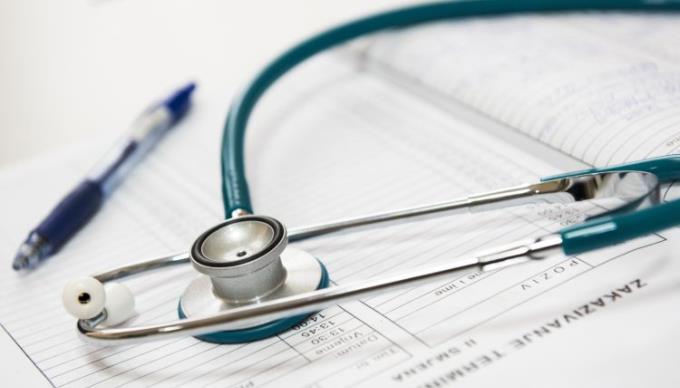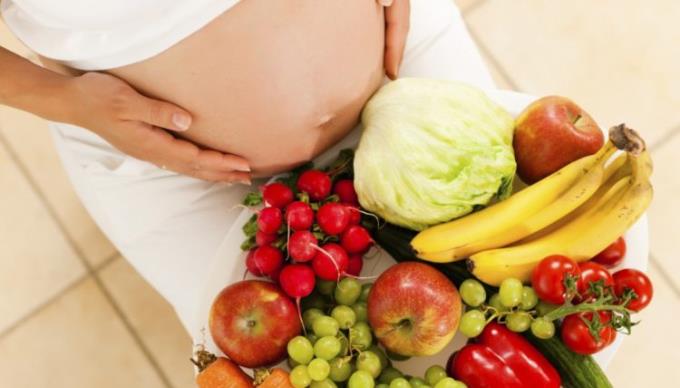Women between the ages of 20 and 60 are more likely to develop gallstones than men. There are 2 - 4% of pregnant women with gallstones detected by ultrasound. There are still many gallbladder diseases during pregnancy that pregnant mothers need to pay attention to.
Pregnancy is the time when a mother's body is most sensitive to changes and changes. Pregnancy can also have a number of effects on gallstones. Let's first learn some information about the gallbladder.
What is gallbladder?
The gallbladder is a small organ located underneath the liver that stores excess bile from the liver. When food enters the stomach, the gallbladder releases bile into the small intestine to digest fat.
If you have any abnormalities in your gallbladder, your doctor will surgically remove your gallbladder. The gallbladder is not an essential organ of the body, so your body will get used to the lack of a gallbladder. Pregnancy is when the gallbladder is more vulnerable to a variety of factors.
Gallbladder diseases during pregnancy are common
During pregnancy, the gallbladder is susceptible to the following problems:
1. Gallstones
Without enough gall salts, too much cholesterol, or the gallbladder not working properly, hard stones, or gallstones, will form. Gallstones are quite common during pregnancy because the hormone progesterone is produced during pregnancy to relax the muscle tissues in the body. This slows down the secretion of bile and makes it easier to form gallstones and cause cholecystitis.
Symptom
When you have gallstones during pregnancy, you may experience the following symptoms in about 1 hour of eating a fatty meal:
Nausea
Jaundice
Severe pain in the right lower ribs or mid-abdomen. You may experience pain, cramping, dullness, or throbbing pain.
When you see persistent pain in your abdomen, see your doctor to check if you have gallstones.
2. High secret of pregnancy
One of the gallbladder disease during pregnancy is pregnancy cholestasis because the body makes more estrogen . The increase of this hormone can increase cholesterol levels in the bile, reduce gallbladder contraction or lead to cholestasis. This can cause complications such as amniotic fluid stools, preterm labor or stillbirth .
Symptom
Itching a lot
Dark urine
Jaundice, yellow eyes
Tired
Depression
Anorexia
Biliary tract is difficult to recognize because the symptoms of this disease are very common during pregnancy. Therefore, if in doubt, you should immediately see your doctor for prompt treatment.
3. The pain cramps the liver
Liver cramps occur when the bile ducts become blocked. When the bile cannot be secreted by a stone, the gallbladder becomes inflamed, infected and it is more difficult to digest fat in the small intestine.
Symptom
The above effects will cause throbbing pain in the upper abdomen and back, lasting for a few minutes to a few hours. You may experience nausea and vomiting.
4. Gallbladder mud
Gallbladder mud occurs when the gallbladder contains too much cholesterol and there is not enough bile. Bile is similar to soap, which emulsifies and helps fat be absorbed in the small intestine. Without enough bile, the fat becomes sludge, known as gallbladder mud or gallbladder sediment.
In some cases, the mud is thicker and forms gallstones. There are also cases where the mud will go away on its own, but if it doesn't go away on its own, your doctor will prescribe medication or surgery to treat it.
When you need to see a doctor

In some cases, you will form a gallstones without knowing it, and the stone won't interfere with gallbladder function. If persisted for a long time, they will clog the bile ducts and damage the gallbladder. Seek immediate medical attention or hospitalization if you experience the following symptoms:
Mild fever or chills
Dark urine
Discolored stools
Jaundice
Abdominal pain on the navel lasts for 5 hours
Pain under the right shoulder
Back pain between shoulder blade
Nausea and vomiting
Distention
Eat fat without digestion
Burping or indigestion
Pain when taking a deep breath
The above symptoms are quite common in the last trimester of pregnancy or after birth. If you are at high risk for gallbladder disease, symptoms may appear earlier. You should be careful and see a doctor immediately if your symptoms persist.
Risks of gallbladder disease during pregnancy
You will be more likely to develop gallstones, cholecystic pain or other gallbladder problems if:
Family history of gallbladder diseases
Have gallbladder disease before pregnancy
Overweight
A diet high in cholesterol or high in fat
Diabetes.
Diagnosis of gallbladder disease
If you have symptoms of gallbladder disease, see your doctor for a definitive diagnosis. Please note the following points after going to the doctor.
You can confuse symptoms of gallbladder disease with morning sickness, but if symptoms persist into the third trimester, your doctor will check to see if you have a gallbladder problem through an ultrasound. stomach.
Your doctor may order you to do an MRI to check your biliary tract, upstream biliary endoscopy (ERCP), and hepatobiliary imaging (HIDA scan).
You will also need blood tests to check for inflammation, biliary tract infection, pancreatitis or other complications.
Note: Laboratory tests such as X-rays and CT scans are usually not safe during pregnancy.
Depending on your symptoms and risk factors, your doctor may suggest different treatment options for you.
Treatment of gallbladder disease during pregnancy
Gallbladder diseases need immediate treatment because many serious complications can happen to both mother and baby. You can choose from non-surgical treatment or surgical treatment.
1. Non-surgical treatment
Your doctor will guide you through the treatment steps more specifically, but you need to keep the following basic points in mind before you visit:
You only need to treat her with gallbladder disease when symptoms start to appear.
If you have signs of infection such as low fever, vomiting, dark urine ... your doctor will give you antibiotics .
If you get itchy because of cholestasis, you will be given an itch reliever and your baby will be monitored closely until birth.
Biliary colic requires immediate hospitalization for pain relief and rehydration.
2. Surgical treatment
Your doctor will need surgery to remove the gallbladder for severe inflammation and pain.
Gallbladder removal through laparoscopy
Gallstones will prevent the gallbladder from being completely empty and susceptible to infection, requiring surgery. Although gallbladder removal surgery is not recommended during pregnancy, there are measures to help remove the gallbladder while pregnant women are still safe.
Gallbladder removal surgery requires tools and a small incision on the abdomen. This method is quite safe and can be done at any time during pregnancy.
Another method is an open surgical removal of the gallbladder, which is performed during the last trimester of pregnancy. The doctor will have to operate a large opening in the abdomen to remove the gallbladder without affecting the uterus.
Laparoscopic method
Gallstones can be obtained with an upstream cholangioscopy (ERCP). Your doctor will use a thin, flexible tube that is inserted from the mouth to the small intestine and into the bile duct. The gravel will be removed through this tube. Your abdomen will be covered so that the fetus is not affected.
Measures to help prevent gallbladder disease during pregnancy
You may not be able to bear the pain of gallbladder disease during pregnancy. Therefore, it is best to prevent disease than cure. You can prevent this disease by:
1. Weight control
Weight control can prevent many complications, including gallbladder disease during pregnancy. You should be sure to eat properly and not overeat.
Exercise
Regular and healthy daily activities are essential. You should do exercise or yoga for pregnant women to keep the body fit and supple.
3. Control diabetes
If you have diabetes and high blood triglycerides, you are at a higher risk of developing gallstones. Therefore, you should check your blood sugar levels regularly.
Good diet for the gallbladder during pregnancy

Diet plays an important role in reducing the severity of gallbladder disease. You should carefully control what you eat on the following diet:
1. Eat plenty of fiber
Eat plenty of whole grains, fruits and vegetables. These foods help support digestion and reduce gallbladder infections. Adjust your portion sizes as follows:
Eat 4-5 servings of fruit or vegetables per day.
Eat a sandwich with vitamin-rich vegetables like tomatoes and spinach instead of mayonnaise or cheese.
Add the dried apricots to the cup of oats.
Eat more berries, broccoli, kale and dark fruits or vegetables.
2. Limit fat intake
Fatty foods will make you more painful if you have gallstones. Eat lean meats and skinless poultry instead of red meat and low-fat yogurt instead of oil. These dietary changes will help you reduce the risk of gallbladder disease during pregnancy and maintain a healthy weight.
3. Drink enough water
Drink plenty of water to help the body stay hydrated, eliminate harmful substances and waste products from the body, improve digestion. However, avoid soft drinks and sodas as they are high in empty calories. You should drink water or lemon juice to ensure adequate hydration.
4. Eat whole food
Instead of eating processed and processed foods, opt for whole, homemade foods. Make your own snacks such as fruits, vegetables, sandwiches and sprouts, avoid processed foods like canned foods because they are high in trans fats, preservatives, and additives. other family.
Natural remedies to help relieve gallbladder pain
Your doctor can help relieve your gallbladder pain with common anti-inflammatory, pain reliever medications. However, the drug can harm mother and baby. So you can try the following natural pain relief remedies:
Exercise can help lower your cholesterol levels and prevent gallstones from forming.
Eat less fat and more fiber to prevent gall bladder and improve health.
Use a hot compress for soothing and pain relief. When suffering from gallbladder pain, a hot compress reduces the spasm and pressure caused by the bile formation.
You can take peppermint because it contains menthol, a natural pain-relieving compound commonly used for stomach upset, improved digestion and relieves nausea.
Apple cider vinegar is anti-inflammatory, so it can be used to relieve the pain of cholecystitis. However, you should not drink apple cider vinegar directly because it can harm your teeth.
Turmeric contains curcumin which is also an anti-inflammatory and has health benefits. Turmeric can stimulate the formation of bile and help empty the gallbladder. Combining turmeric with a daily meal can reduce inflammation and pain caused by the gallbladder.
Magnesium is a substance that helps to empty the gallbladder, while also reducing spasm and pain. Magnesium deficiency can be a risk factor for gallstones, so take it regularly .
Hopefully, the above mentioned pain relief and prevention methods can help you avoid this disease causing a lot of discomfort and pain. Keep yourself a healthy lifestyle and a reasonable diet to avoid many other diseases!













